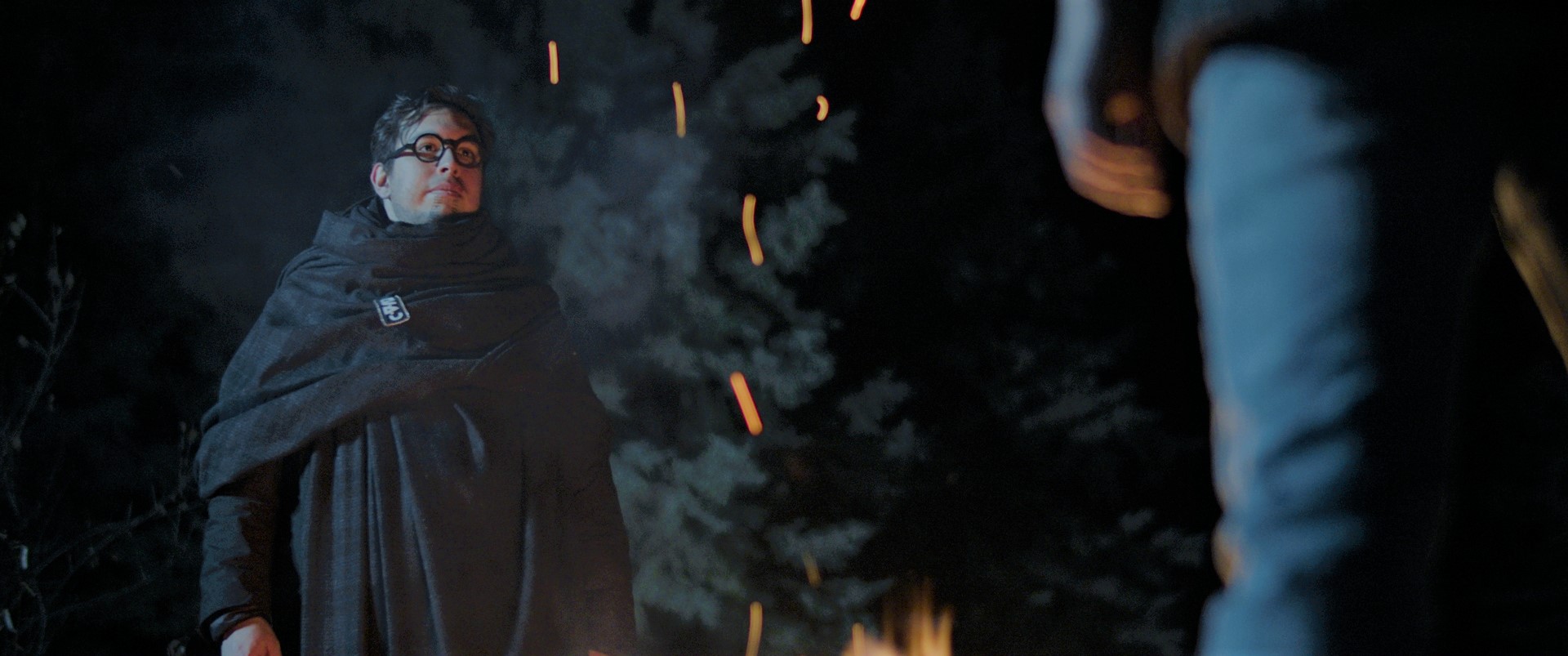Toronto’s Against the Grain Theatre and artistic director Joel Ivany have pulled off a creative coup by roping in top-tier artists and cultural organizations from across the country to present an ambitious reimagining of George Frideric Handel’s 1742 Messiah. Called Messiah/Complex, the production boasts four choirs, 12 soloists and six languages—all anchored by the Toronto Symphony Orchestra conducted by Johannes Debus. Each of the soloists, half of whom are Indigenous, were recorded in different parts of the country, and represent all Canadian provinces and territories. Each of their performances was turned into a short film, a mini narrative, some based on new, reimagined texts and some on newly translated versions of the original text. The end result promises to transform the Messiah into something as expansive and diverse as Canada itself. (Messiah/Complex premiered in December 2020 and is being streamed again for Easter.)
The original libretto for the Messiah was based on passages from the King James Bible and the Book of Common Prayer and describes the story of Jesus Christ. And while many of the soloists wanted to respect the Messiah’s Christian message, others wanted to subvert or replace it with non-Christian ideas and imagery.
Among the Indigenous artists, co-director Reneltta Arluk drove the adaptation. The mystifying cosmology of the original libretto, with its “Lord of hosts” and “good tidings to Zion,” proved a formidable challenge. “If we’re looking at Indigenous language, there is no direct translation,” says Arluk, the Banff Centre’s Director of Indigenous Arts and a theatre artist of Inuvialuit, Dene and Cree descent. “So I thought, let’s look at the essence of what this text is saying and then let’s chat with the singers and filmmakers about how they interpret it.”
The results, she says, were fascinating. Soloist Diyet van Lieshout, originally from the Kluane First Nation in the Yukon Territory, turned to her grandmother to translate her section, “Behold the Virgin Shall Conceive,” into Southern Tutchone, transforming it into an invocation of the land and a humbleness in the presence of the Creator. Soloist Deantha Edmunds dug into the history of Newfoundland and Labrador to reimagine her section, “Beautiful Are the Feet,” working with an Elder to translate it into Inuttitut. Her filmed segment connects human history to nature and the divine through the image of caribou tracks. Soprano Miriam Khalil had her section translated into Arabic, while Juno Award-winning singer Leela Gilday wrote new text for her section in Dene.

Credit: Tom Gunia
Two-Spirit singer Jonathon Adams, a classically trained baritone who specializes in the Baroque music of Handel’s era, decided not to alter their section. “It was quite daunting because it’s a piece laden with a lot of history and its own performing tradition,” says Adams, who is nêhiyaw michif (Cree Métis). “I wanted to tease out what we could from the existing Biblical text, even though I’m not religious. I just feel very close to the text. Preserving it was important to me.”
Adams sings one of the most dramatic solo sections in the whole oratorio, “He Is Like a Refiner’s Fire.” That text immediately inspired Adams, who hails from Edmonton, and cinematographer Tom Gunia to explore Alberta’s oil industry and the centrality of resource extraction in North American colonial history. Adams was also keen to look at the toxic masculinity that exists in the oil patch and elsewhere in Alberta.
“We were moved to work with an actor [Nathan Loitz] who could represent someone working in an oil refinery, whose queerness and Indigeneity, whose light and their own spark, is diminished,” Adams says. “But by returning to the land, working in the tradition of his people and building up the fire, wholesome fire on the land, he comes back to himself.”
As an early-music specialist who was adopted out of his Cree community to be raised in a Christian family, Adams has, to say the least, very complex feelings about religion and religious music.
“For me, singing religious music is a form of occupation and it’s a form of resistance. As a queer, Two-Spirit Indigenous person singing Christian music from around the time of contact, my perspective is that actually I’m occupying the space, drawing a different focus and even subverting the message in some way by queering it from inside.”
“For me, singing religious music is a form of occupation and it’s a form of resistance.”
The project’s unique, collaborative approach was deeply moving for Adams, as for many artists involved in Messiah/Complex. “To actually see ourselves as Indigenous folks being centred within this retelling or this takeover of Messiah—that’s really radical in a great way,” Adams says.
Arluk agrees. She calls both the process and the final product “an invitation into community.”
“What I’m really looking forward to is seeing everybody singing from their place of heart and hope and land,” she says. “And when the audience sees it, they’re going to feel more connected to Handel than they probably ever did, because they’re seeing everyone across the country singing from that place of heart.”
Messiah/Complex streams from Apr. 1 to 13; register here.
March 22, 2021: The streaming dates have been changed since this story first ran to reflect the encore performance.


 Why you can trust Xtra
Why you can trust Xtra


